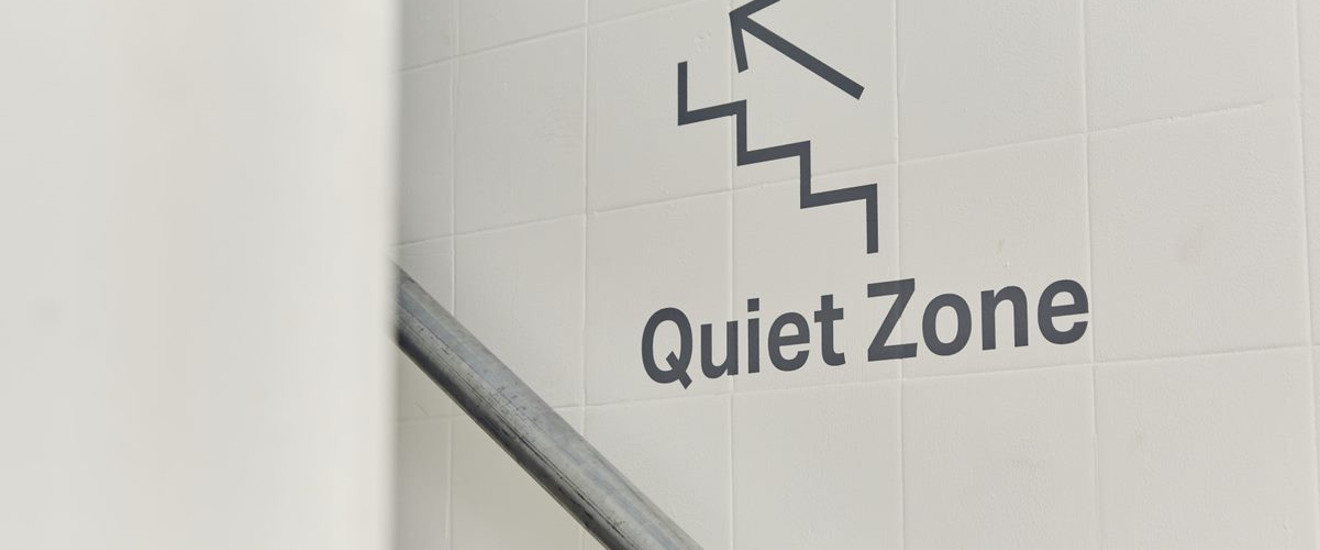How to communicate an office relocation to your employees
Discover strategies to effectively communicate an office relocation to employees. Learn how to keep your...

Have we unwittingly created workspaces that work for only half of our employees? Katie Treggiden reads Susan Cain’s Quiet: The Power of Introverts in a World that Can’t Stop Talking in the hope of finding out.
Albert Einstein, Rosa Parks and Steve Wozniak were all introverts. So were Charles Darwin, Marie Curie and Lewis Carroll. In fact, a recent YouGov study found that half of Britons say they are introverts. Of course, that’s an over-simplification. Not only do most of us sit somewhere on a spectrum from introversion to extraversion, but our personalities are also determined by our position on a host of other spectra from our openness to new experiences and our agreeableness, to how conscientious and emotionally stable we are – all of which have been conflated into cultural notions of extraversion and introversion. Whatever the labels, an awful lot of those who identify as introverted feel as though they are living in an extraverts’ world.
Before the Industrial Revolution, people lived and worked with folk they had known their entire lives. Character was therefore crucial. As we industrialised and people moved to cities, first impressions suddenly mattered more. The ‘cult of the personality’ was born. A firm handshake, a winning smile and a talent for small talk got you a long way – all traits of the extravert and characteristics we’ve prized ever since. Today, extraverts are more likely be given jobs, elected into senior leadership positions and given decision-making powers, despite extensive evidence suggesting that introverts outperform extroverts in some surprising situations.
A piece of research dubbed the ‘Coding War Games’ found that programmers who were given privacy, personal space, control over their environments and freedom from interruption bettered those without such surroundings by ratios of up to 10:1. Introverts are more likely to spot risk, succeed at complex tasks that require persistence, and make creative breakthroughs. Extraverted leaders might be better at managing passive workforces, but introverts excel at leading proactive staff.
So why are so many of our workspaces built around the collaborative habits of extraverts? 70% of us now work in open plan spaces. The amount of floor space per employee is shrinking; private offices are largely a thing of the past; and shared online calendars announce our availability to all. In short, there is nowhere to hide. All of this is great news for extraverts who will often check a job has opportunities to socialise and meet new people before they sign on the dotted line. And, of course, collaboration is vital for creativity – once an idea is formed, bringing it to life often ‘takes a village’, as the saying goes.
If you want to attract extraverts, introverts, and everybody in between, have an open-plan office and sociable breakout zones, but make sure there are also areas in which introverts can do their best work. Create what Professor Brian Little calls ‘restorative niches’. These might be quiet corners, private offices with doors that close or simply moments within the day into which introverts can retreat to recharge their batteries. Think carefully about acoustics and lighting to manage the over-stimulation that introverts can find so draining. Most importantly, make social interactions accidental or optional and avoid ‘forced fun’. Not only will you appeal to introverts, but also to ambiverts – those who can display either tendency depending on what they’re working on. No matter where someone sits on the introvert / extravert spectrum, the real magic only happens when they have the freedom to be themselves.

Discover strategies to effectively communicate an office relocation to employees. Learn how to keep your...

Explore 10 creative office design ideas to boost creativity in the workplace and learn how to create...

Our latest research looks into the best UK and London locations for work-life balance and the most searched...

Explore the top 5 office design trends for 2025 and learn how to create purposeful, future-ready workspaces...

Your workplace holds enormous potential to improve your business performance. Get in touch today, and we will unlock that potential together.